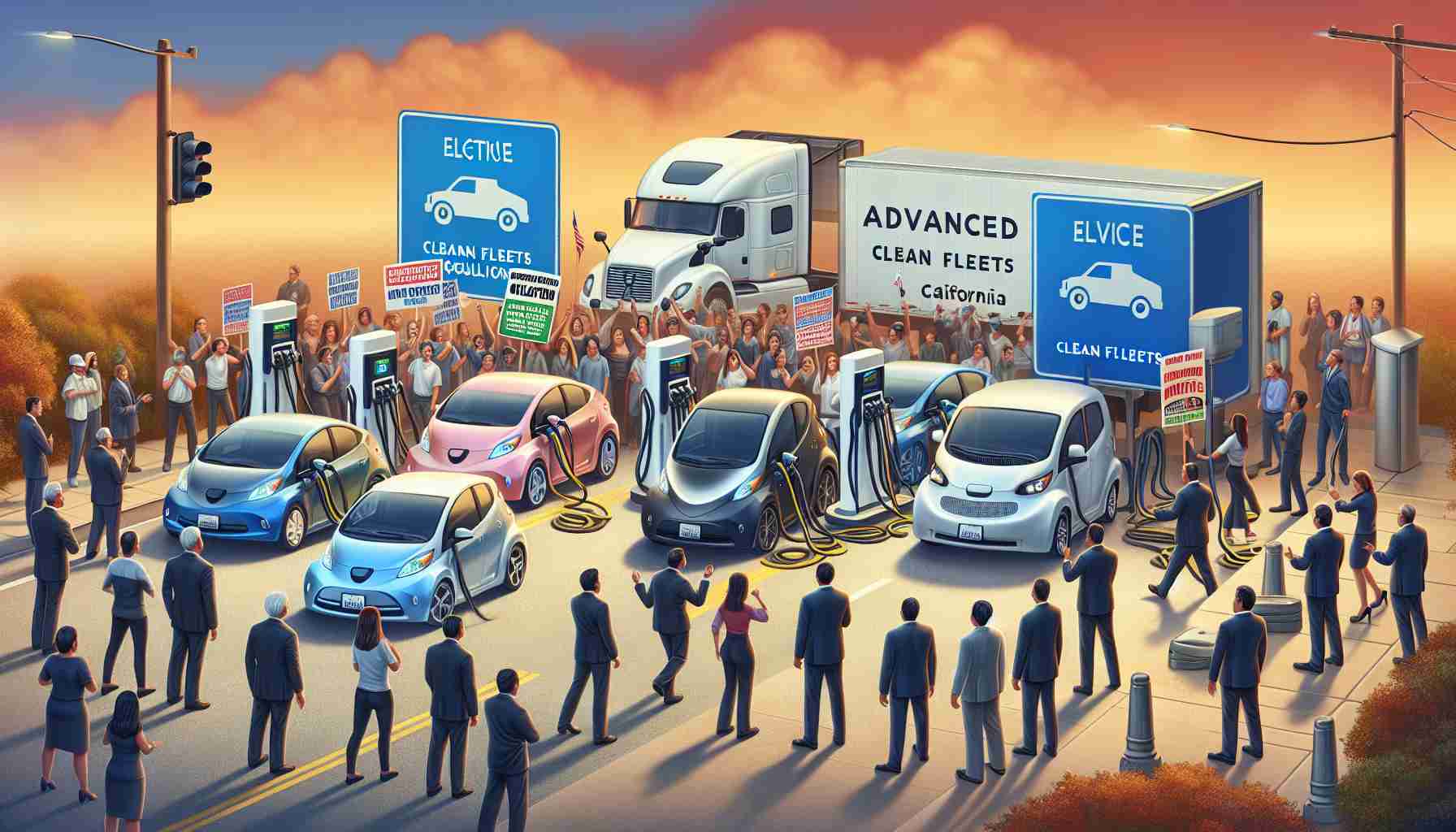The Environmental Protection Agency (EPA) recently concluded a comment period regarding the California Air Resources Board’s (CARB) proposal for the Advanced Clean Fleets (ACF) regulation, which requires certain fleets to transition to zero-emission vehicles. This regulation aims to enhance air quality but is contingent upon obtaining a waiver from the Clean Air Act.
The 60-day feedback period saw significant participation, attracting 405 comments largely supporting the ACF waiver, primarily from environmental advocates. However, a notable segment of the trucking industry voiced strong objections. Many stakeholders raised issues about the EPA’s authority to grant such a waiver, based on the stipulations of the Clean Air Act.
In a concerted effort, attorneys general from numerous states, led by Nebraska’s AG, expressed their concerns that the ACF represents an overreach by California, potentially disrupting their local economies reliant on logistics and agriculture. The state officials warned that the ACF could impose unwanted mandates on their operations without their consent, especially given the interconnected nature of inter-state transportation.
Additionally, both the American Trucking Associations and the California Trucking Association emphasized that the ACF differs fundamentally from previous regulations, questioning the rationale behind varied emissions standards based on fleet size. They argued that the impact of electric vehicle infrastructure and associated emissions had not been properly assessed.
This regulatory debate highlights a pivotal moment in the push for zero-emission technology and reveals a complex landscape of state versus federal authority in environmental policy.
Embracing Zero-Emission Vehicles: Tips and Facts for Everyday Life
The recent discussions surrounding California’s Advanced Clean Fleets (ACF) regulation are pivotal not just for the trucking industry, but for everyone interested in environmental sustainability and clean transportation. As California takes the lead in promoting zero-emission vehicles, it’s an opportune moment for individuals, students, and professionals to understand how these changes can impact their daily lives and work environments. Here are some helpful tips and interesting facts to consider:
1. Understanding Zero-Emission Vehicles:
Zero-emission vehicles (ZEVs), including electric cars and hydrogen fuel cell vehicles, produce no harmful exhaust emissions. This contributes significantly to improving air quality. Learning about the different types of ZEVs can help individuals make informed choices when considering their next vehicle purchase.
2. The Future of Work:
As businesses increasingly transition to ZEVs, employees can benefit from workplace charging stations. Engaging with your employer to advocate for such infrastructure can lead to advantages like reduced commuting costs and access to reliable energy sources while at work.
3. Educational Opportunities:
Students should be aware that many colleges and universities are incorporating sustainability into their curricula. Participating in programs related to environmental science and engineering can be a great way for students to prepare for careers in the growing green technology sector.
4. Cost Savings:
Though the initial cost of ZEVs may be higher than traditional vehicles, savings over time can be significant. Reduced fuel costs and available tax incentives at both state and federal levels can make ownership more affordable. Potential buyers should research the financial incentives available through resources like the U.S. Department of Energy.
5. Local Policies Matter:
Understanding your local government’s policies regarding emissions and transportation can provide insight into upcoming regulations, incentives, and available supportive resources. Staying informed may also open up opportunities to engage in community actions promoting cleaner air.
6. The Role of Technology:
Advancements in technology are crucial for the successful rollout of ZEVs. Innovations such as mobile apps for locating charging stations and smart grid technology for efficient energy management are becoming increasingly relevant. Familiarizing yourself with these technologies can enhance your experience as a ZEV owner.
7. Community Engagement:
Becoming involved in local advocacy groups focused on environmental health can amplify your voice in discussions around regulations like the ACF. Community engagement often leads to a stronger collective perspective on important issues that affect public health and economic welfare.
8. The Bigger Picture:
As the ACF regulation illustrates, state-level initiatives can influence national policy frameworks. Supporting clean air initiatives contributes to broader efforts against climate change by reducing greenhouse gas emissions and promoting renewable energy sources.
By keeping these tips in mind, individuals can align their lifestyles and work habits with the evolving landscape of zero-emission vehicles in California and beyond. Knowledge and proactive engagement can significantly contribute to a healthier planet while fostering economic growth in the green sector. Explore more about the regulatory landscape and its implications at Environmental Protection Agency.







